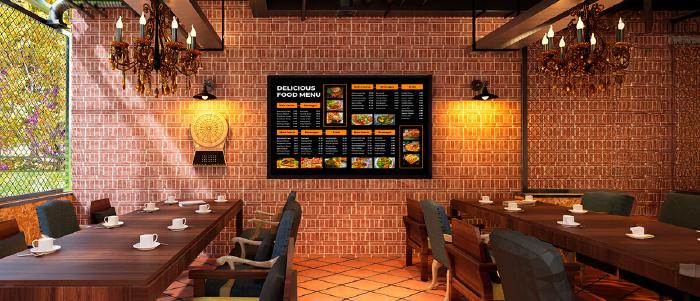
Dec 4 2024
7 min read

Everyone of us might have seen those colossal, vivid screens in a concert, live event, or sports event. It is much more than just giant screens. In a world where attention is the ultimate currency, these Jumbotrons enhance the fan experience and serve as an advertising powerhouse.
Although these Jumbotrons are not something new, as they are already famous like New York’s Times Square or London’s Piccadilly Circus, but what exactly makes these mega-screens so useful?
In this blog, we will be covering everything about the Jumbotron:
What is a Jumbotron?
History and Evolution of Jumbotrons
How Does Jumbotron Work?
Use Cases of Jumbotrons
Future of Jumbotrons
Benefits of Jumbotron
Renting vs Buying a Jumbotron
How Much Does a Jumbotron Cost?
Choosing the Right Jumbotron
Importance of Choosing the Right Jumbotron
Famous Jumbotrons Around the World
Conclusion
Let’s start by understanding what a Jumbotron stands for.

A Jumbotron screen is a huge, high-definition screen which provides clear and brighter displays and is used in stadiums, concerts and other such outdoor venues. They are much larger than the normal LED displays and also have higher resolution. In simple terms, a Jumbotron is a massive TV that catches the attention of the audience.
Due to their massive size, the prefix “jumbo” has been used to describe them. The huge size and clear and bright displays (even during daylight hours) are how they grab the audience’s attention.
Massive digital signage screens came into existence in the early 1980s, which revolutionized large visual displays. The first giant screen was introduced by Mitsubishi’s Diamond Vision, but its use was popularized due to Sony’s Jumbotron which debuted at the 1985 World’s Fair in Japan.
The early Jumbotrons made use of CRT technology along with incandescent bulbs providing very low resolution (240 x 192 pixels). Even with their low resolution and bulky design, they transformed sports stadiums and concerts by increasing audience engagement.
Over the years, broader screens have been introduced alongside advancements in technology, such as the replacement of CRTs with LED screens, which improved brightness, resolution, and energy consumption. Today’s Jumbotrons boast AI integration, real-time interactivity, and ultra-high definition displays, encompassing a whole new level of entertainment.
The earliest Jumbotrons were based on the CRT (Cathode Ray Tube) technology, the ones used in bulky TVs. However, they aren’t much functional outdoors. With technological innovations, the modern Jumbotrons today are based on the LED (Light-emitting diode) technology. This also reduced the size of Jumbotrons and made their structure slimmer.
In a modern Jumbotron, numerous LED modules, each of which has tiny LED lights, are fit together. These modules work to produce the display by varying the intensity of light.
The LED modules are assembled together into large panels, which form a single, seamless display altogether. The screen operations, right from displaying content to managing its transitions, are controlled using advanced software.
Modern Jumbotrons can receive input from various sources like live video feeds, pre-recorded content, and digital signage software. Integrated into a network, they allow remote control for quick content updates and adjustments, such as changing sports scores or switching to a live feed, all with just a few clicks. This setup simplifies content management and troubleshooting, ensuring displays stay relevant and engaging, even in large venues.
The resolution of the screen is decided by the pixel pitch - the arrangement and density of the LED lights. The tighter the pixel pitch is, the more LEDs are present per square inch and the sharper and clearer the picture is, even from a distance.
For example, a Jumbotron with a pixel pitch of 4mm will have a higher resolution than one with an 8mm pitch, making it ideal for scenarios where viewers are closer to the screen.
Jumbotrons are commonly used in large venues such as sports arenas, concerts, city centers, and public events. Here’s how they play a role in these settings:
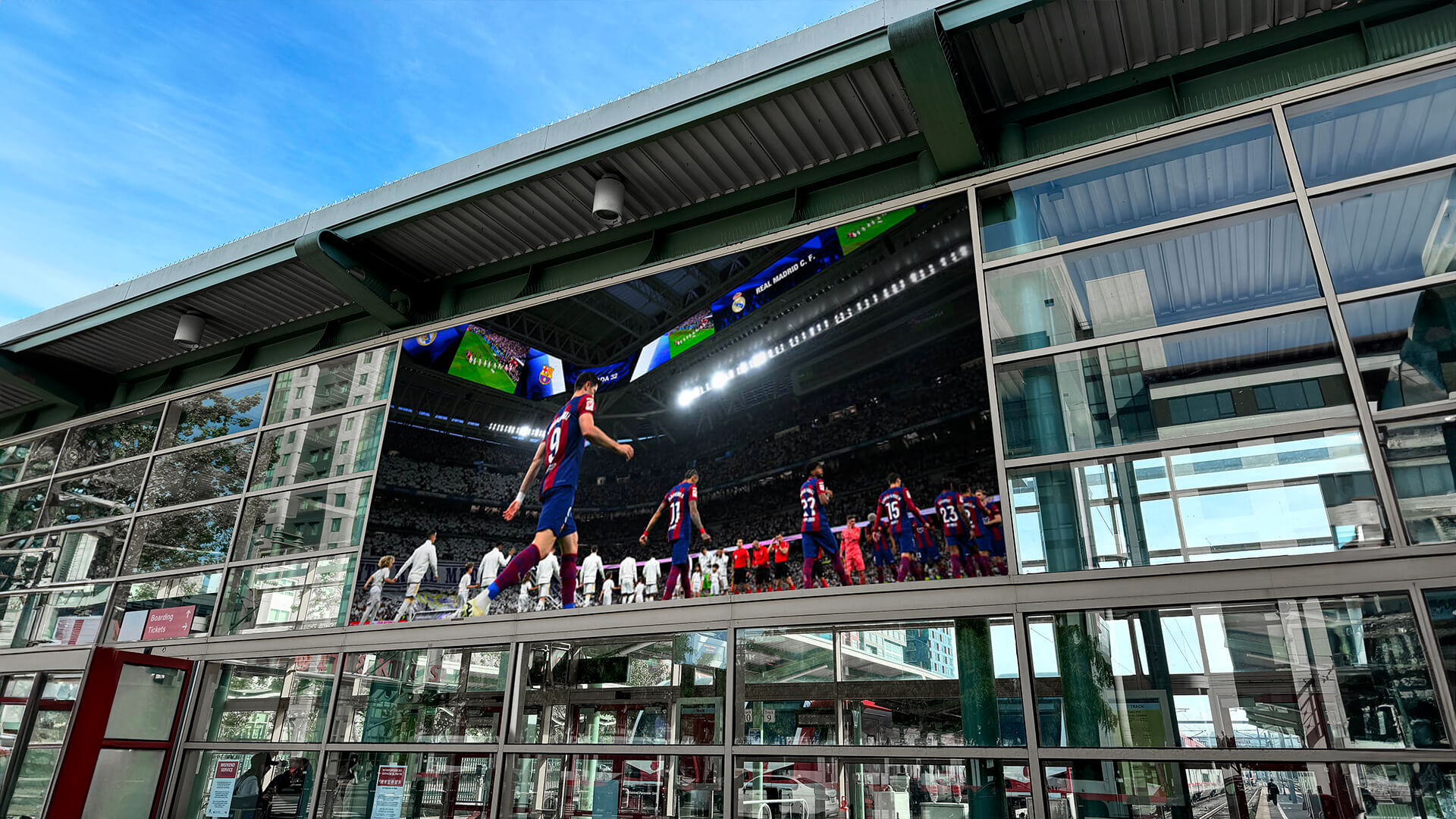
Jumbotrons are a popular way to broadcast live action during games, ensuring every fan has a clear view, no matter where they’re seated. They also show instant replays, real-time scores, and fan cams, keeping the excitement going throughout the event.
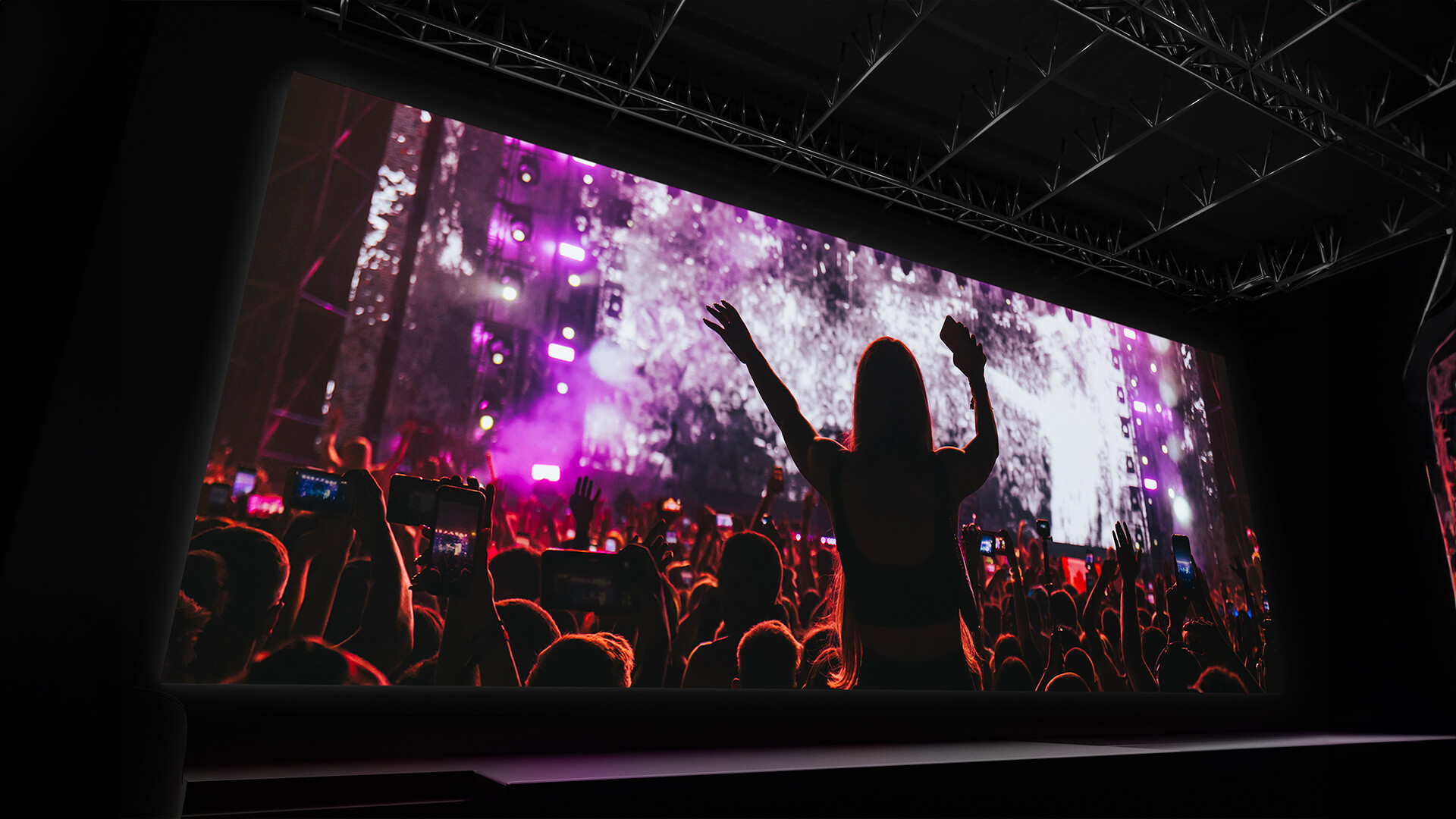
For fans seated far from the stage, Jumbotrons provide close-up views of performers, giving everyone the feeling of being up close. They also enhance the visual experience by displaying graphics, animations, and live feeds, along with behind-the-scenes footage or fan interactions.
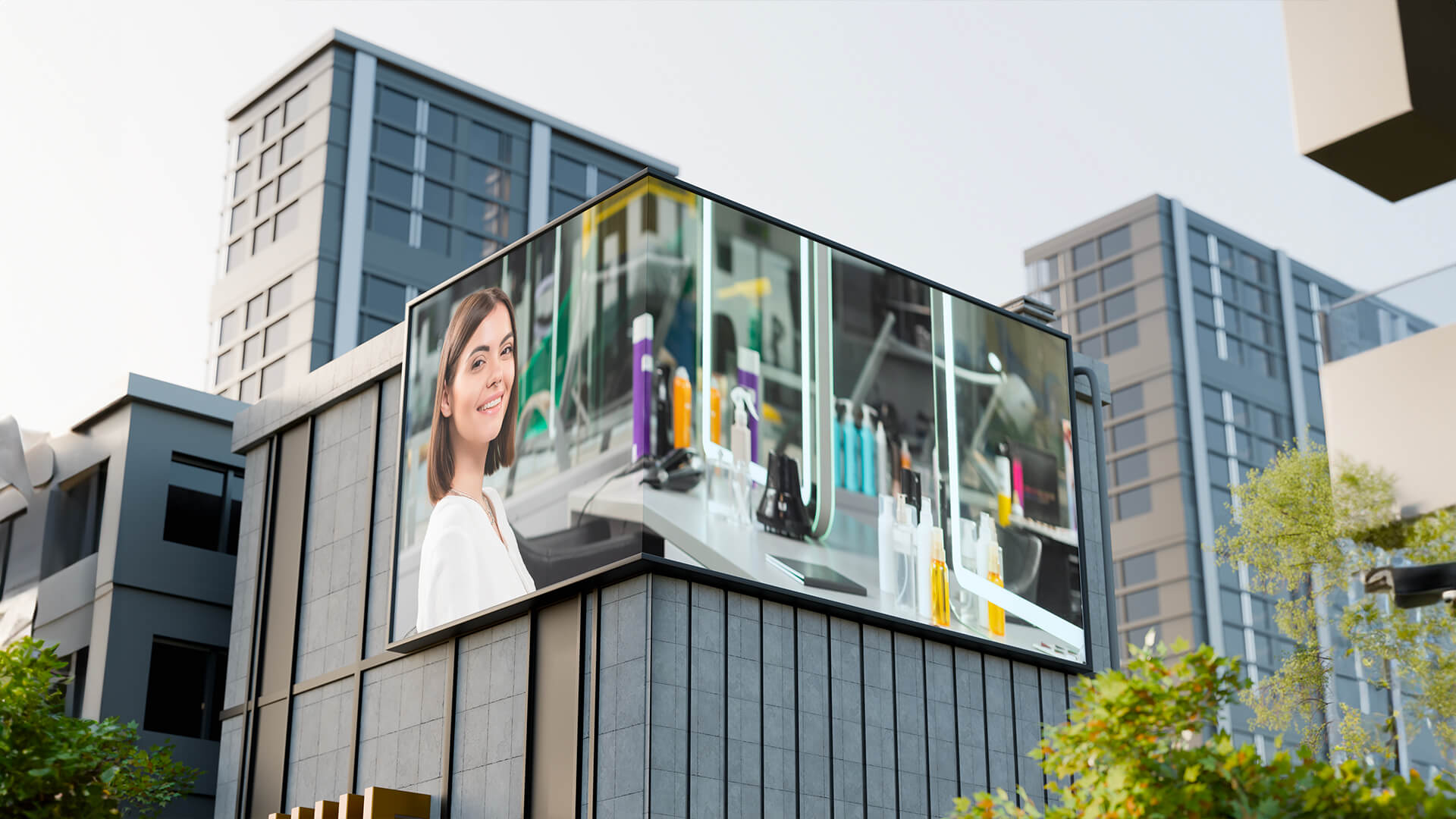
In urban areas, Jumbotrons are valuable DOOH digital signage advertising platforms, promoting local businesses, global brands, and events. They also broadcast important public information, like weather updates, traffic alerts, or emergency notifications, reaching both locals and tourists.
At festivals, parades, or rallies, Jumbotrons are essential for displaying schedules, event maps, and announcements. They ensure critical updates, such as schedule changes or emergency alerts, are quickly communicated to everyone attending.
Imagine bringing the power of a stadium-sized screen into your home where huge, high-resolution screens create an immersive entertainment experience like never before. Once limited to arenas and outdoor events, Jumbotrons are now making their way indoors, transforming home theaters, conference rooms, gaming setups, and even luxury living spaces.
Check out: Large screen 3d digital billboards with jaw-dropping visual content
Jumbotrons are being transformed by artificial intelligence (AI), which makes them more effective, and interactive. The visual experience and the way these screens work in various settings are being improved by the use of AI.
Adaptive display adjustments: Jumbotrons may now automatically change color, contrast, and brightness depending on their environment thanks to artificial intelligence. The screen adjusts automatically to provide the optimal viewing experience, whether in a bright sports stadium or a dim meeting room.
Enhanced image clarity: AI-driven systems are able to instantly enhance low-quality photographs by enhancing colors and sharpening images to make sure every detail is visible. For live events and fast-paced activity on screens, this is quite helpful.
Intelligent customization of material: Jumbotrons can now identify audiences and modify material appropriately. Targeted advertisements or information can be shown in public areas or retail establishments according to the flow of people, the time of day, or even the weather.
Interactive engagement of fans and audiences in sports venues: More than simply a term, artificial intelligence is a game-changer that drives innovation and creativity to improve fan’s experiences, streamline stadium operations, and open new income prospects through entertainment digital signage.
Jumbotrons aren’t just large; they are versatile and practical. Here are a few more reasons on why jumbotrons are useful.
High Visibility: Jumbotrons are designed to provide high visibility from a distance. It has a bright, vivid screen that can display clear content under various lighting conditions, even in broad daylight. Due to its larger size, it provides a high viewing angle to people spread across a larger area.
Flexible Content: Jumbotrons offer the flexibility to display various types of content such as video, image, graphics, and live feeds in shows and events. It can simultaneously display live streaming events, with sponsored ads, and other information.
Real-Time Updates: Jumbotrons offer the flexibility of real-time content updates and instant content changes. Organizers of concerts and live events can use Jumbotron displays to frequently update information like scores, guest details, or switching promotion information.
Economic Advantage: Given its large size and visibility, Jumbotrons is a suitable advertising platform. Through these big billboard displays, brands can display promotional content, brand collaboration, and product advertising throughout the event. Additionally, it eliminates the need for printed materials, like banners, posters, and flyers, ultimately saving a lot.
Enhance events and audience engagement: Jumbotrons have the advantage of capturing the attention of a large group of people during an event. In events with large populations, it is hard for everyone to get a close and clearer view of the event.
They can check the Jumbotrons to witness the moment regardless of their position and seat. For instance, in sports matches, they can watch the moments closely and even get the chance to check scores and replays. It provides them with all the information updates live with the experience of being part of the crowd of the event.
Planning to install a jumbotron? Well, it’s important to understand the several elements that affect the final cost while preparing to build a Jumbotron. Here is a detailed breakdown:
Display Type: In order to produce lively and dynamic graphics that improve audience engagement, modern jumbotrons mostly use full-color LED displays.
Brightness Levels: Improved LED technology can raise prices, but more brightness guarantees visibility in a range of lighting circumstances.
Screen Size: Higher costs result from the need for more labor and resources to produce larger screens. For instance:
Jumbotrons that are small enough to be used on high school football grounds cost between $30,000 and $500,000.
Stadiums for colleges or universities: from $400,000 to $3,000,000.
Stadiums for professional sports: $1,000,000 to $40,000,000.
Resolution: Although they cost more, higher-resolution screens like those with 4K or 8K capabilities offer better visual clarity.
Site preparation: Depending on whether the location needs new construction or already has support structures, costs may differ.
Mounting and Rigging: Complicated installations can be more expensive, particularly in locations without pre-existing support structures.
Control Systems: The total investment may be increased by sophisticated control systems that interface with other technologies.
Audio Integration: Adding top-notch audio systems improves the watching experience but raises the price.
Usage Duration: Renting a Jumbotron might be an affordable option for brief gatherings. The size and duration of the rental affect the cost:
$1,000 to $3,000 a day for small to medium screens.
$5,000 to $10,000 per day for larger displays.
Maintenance: To guarantee optimum performance and lifespan, regular care is necessary, which raises the total cost.
You may make well-informed selections that fit your event’s objectives and budget by carefully assessing each factor and taking reliable data into account. This will guarantee that the technology investment actually improves the event experience. But wait! Now comes the big question; should you rent or buy? Don’t worry, we’ve done the work for you.
Still debating whether to rent or buy a jumbotron? Here’s a vivid comparison to help you make the best choice!
| Factor | Renting a Jumbotron | Buying a jumbotron |
|---|---|---|
| Best for | Short-term events (sports, festivals, concerts). | Regular use in stadiums, businesses, or permanent venues. |
| Cost | Lower upfront cost but can add up over multiple rentals. Ranges from $1,000 to $10,000 or more per day and varies based on size and feature. | High upfront investment, but cost-effective in the long run. Smaller displays range from $10,000 to $50,000 and larger models from $30,000 to $150,000. |
| Access to Technology | Provides access to the latest models without a long-term commitment. | Requires periodic upgrades, but you have full control over the model you choose. |
| Customization | Limited; rental company controls available features. | Full control over screen size, resolution, and settings. |
| Flexibility | Can switch models for different events based on need. | Fixed once purchased, but can be rented out to generate income. |
| Long-Term Expense | More expensive over time if rented frequently. | Initial investment but saves money over repeated rentals |
| Ownership Benefits | No ownership, so no resale value. | Can be resold as a depreciating asset when upgrading. |
| Maintenance and Support | Handled by the rental company, reducing operational hassle. | Requires in-house maintenance, which adds to costs and responsibility. |
| Revenue Potential | No earning potential. | Can generate revenue through advertising, sponsorships, or renting out. |
| Commitment Level | Short-term, no long-term obligations. | Long-term commitment but offers more financial returns. |
Consider these factors when selecting a Jumbotron:
1. Size: The size of the Jumbotron should be proportionate to your venue and audience size. A too-small one might not be visible to everyone, and an oversized one will make it unnecessarily costly.
2. Resolution: A higher resolution provides a sharper, more detailed image of the content through a digital signage player. High-resolution Jumbotron is essential if your audience is close to the screen or you are planning to display intricate graphics or content.
3. Brightness: Brightness is a key factor as it needs to be clearer even in outdoor events or venues with strong ambient light.
4. Content Needs: According to your content needs, you can select screens with necessary screen specifications, such as refresh rates for smooth video playback or color accuracy for vibrant graphics.
Choosing the right jumbotron is not only about getting a screen but about making a statement. Here’s why it matters:
Enhances Brand Image and Professionalism: A carefully selected jumbotron conveys the reliability of your company or gathering. A top-notch display with seamless operation makes a good first impression and enhances the visual appeal and credibility of your business.
Reduces Long-Term Maintenance Cost: Purchasing the appropriate jumbotron guarantees longevity and lowers the need for regular repairs or replacements. A subpar display might cause technological issues that disrupt operations and necessitate expensive repair.
Ensures Supplier Reliability and Comprehensive Support: Selecting the appropriate supplier is essential since they offer complete assistance, which includes installation, upkeep and troubleshooting. A trustworthy source guarantees that your jumbotron will operate effectively and without unforeseen technical issues.
Simplifies Content Management and Display Control: Scheduling, updating and changing the displayed material is made simple with proper software integration. Large screen management becomes difficult and ineffective without the proper software assistance, which reduces the usefulness of jumbotrons.
One of the most popular choices for this purpose is Pickcel. It is easy to set up and manage, and you can even control everything from your mobile device.
Some Jumbotrons are almost as famous as their locations:
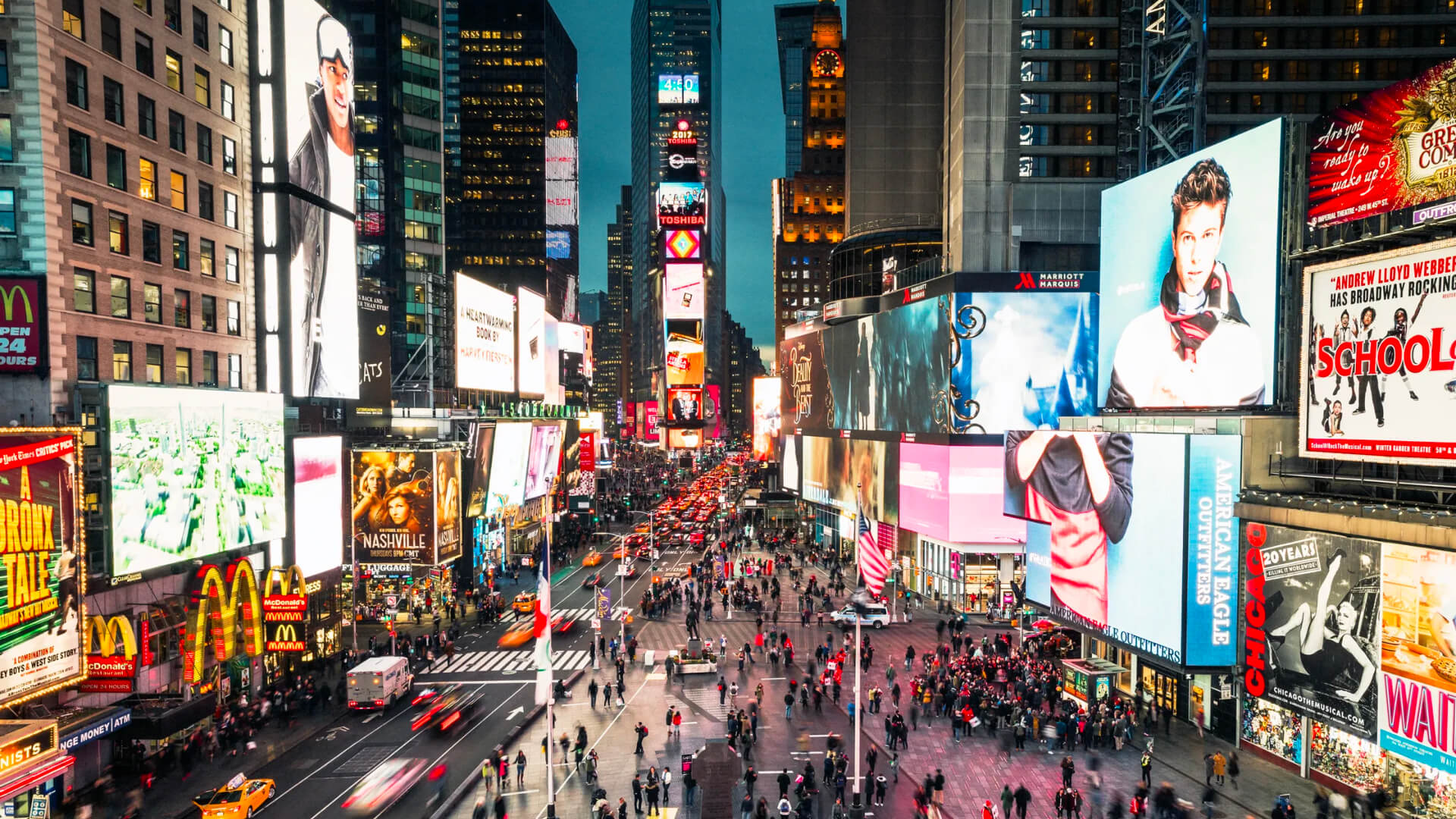
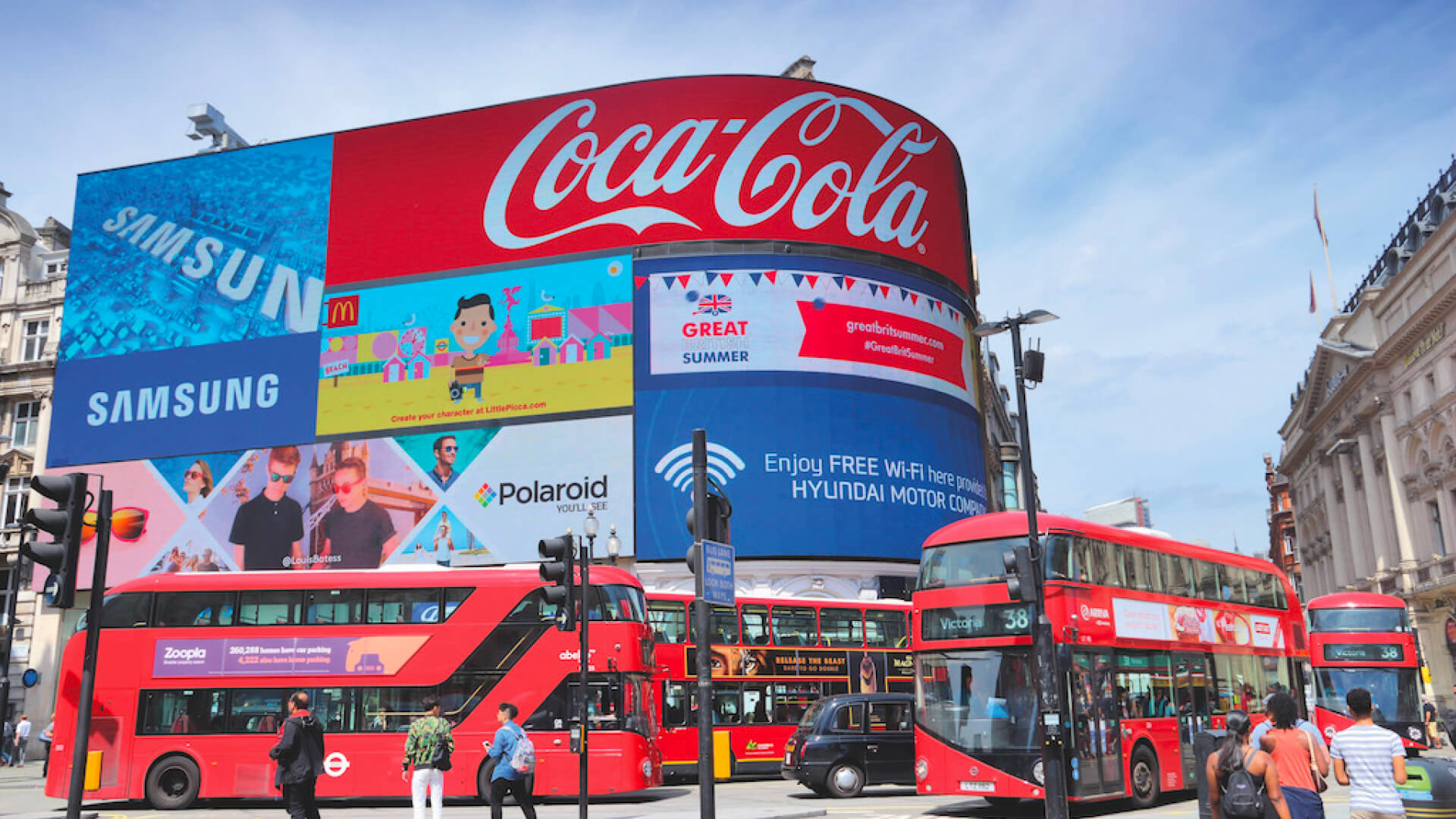
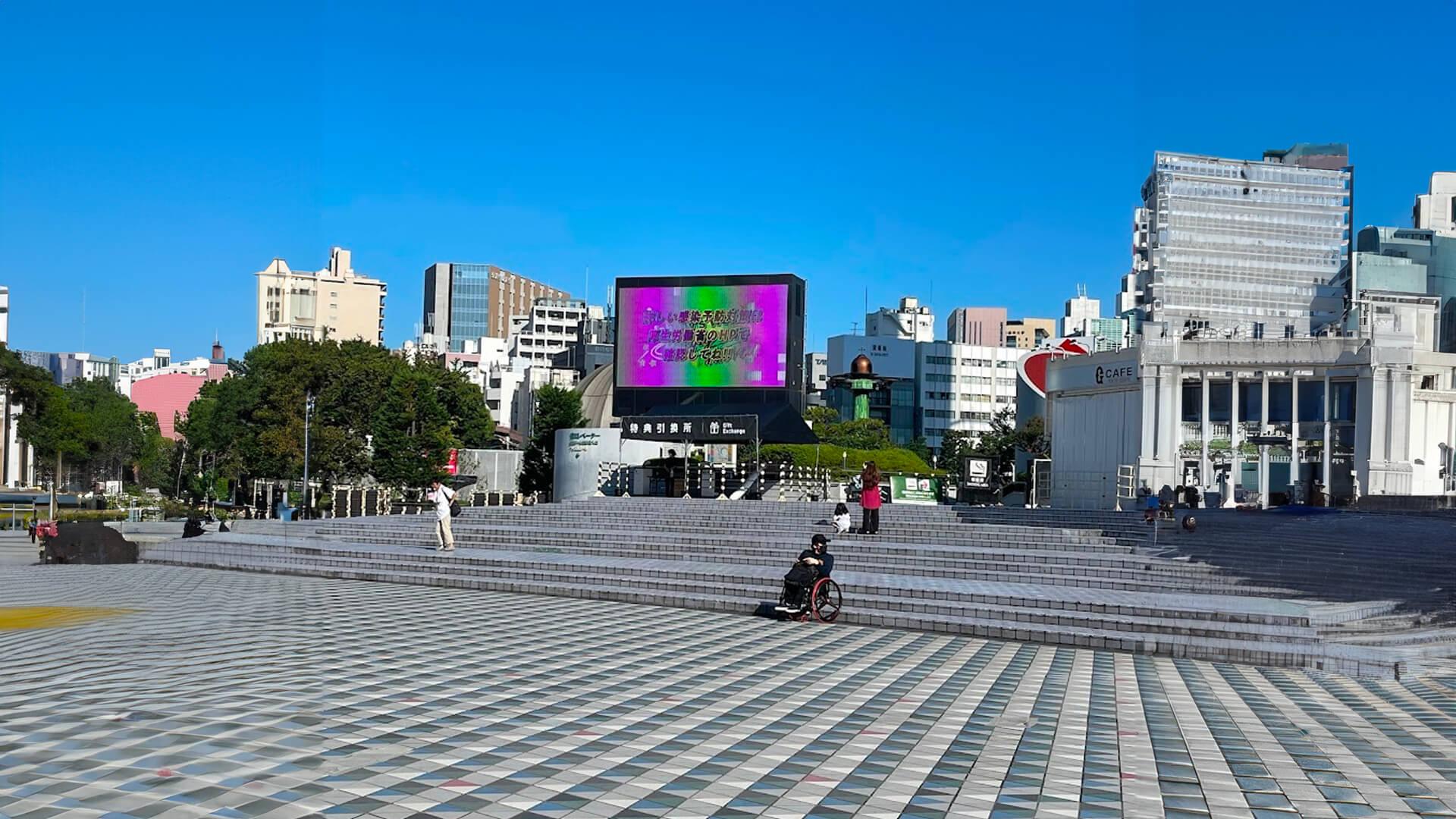
Jumbotrons have become a vital part of large events and public displays, gaining popularity in venues worldwide. From the 160-foot-wide screen at Texas’s AT&T Stadium to the massive one at Rogers Centre in Toronto, these giant displays are built to engage thousands of spectators at once.
Whether your goal is to entertain, inform, or advertise, Jumbotrons provide an effective way to reach large audiences. Renting or buying one ensures that you capture attention and create memorable experiences. You won’t regret it! If you’re also in need of Jumbotron management software, be sure to try Pickcel app.
They can last up to many years if properly maintained but however it also depends on usage and environmental factors.
Jumbotrons used for outdoor purposes are made to withstand weather conditions, including rain and wind.
It varies based on the size and brightness of the jumbotron screens. Thus it is advised to ensure adequate power supply at the venues.
Yes, mobile jumbotrons are available for events that need temporary setups.





Dec 4 2024
7 min read
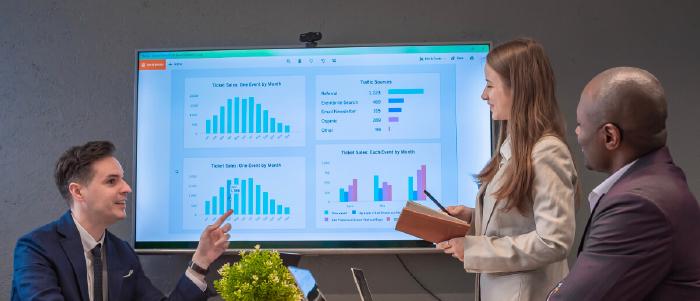
Nov 20 2024
8 min read
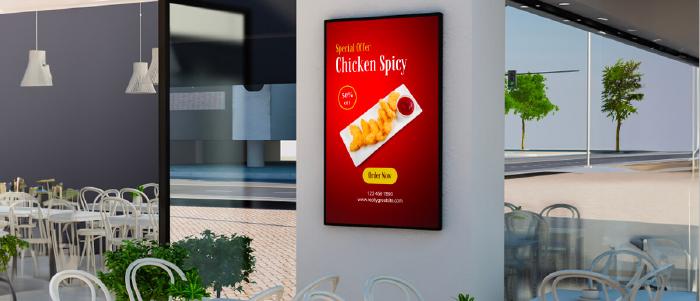
Nov 8 2024
7 min read

Nov 5 2024
5 min read
Take complete control of what you show on your digital signage & how you show it.
Start Free Trial Schedule My Demo